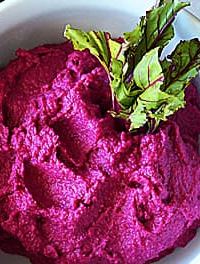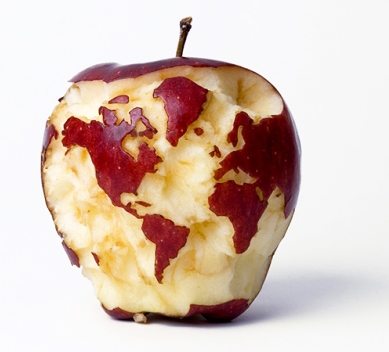
Money and privilege obviously make very comfortable bedfellows. But trying to buy your way to the front of the line and getting caught red-handed? Not so much! The response to ex-British Columbia Gaming Commission CEO Ron Baker and actress Ekaterian Baker trying to jump the COVID vaccine queue has been widespread condemnation. The wealthy couple made a precarious bet on their own futures by flying into a remote Yukon village, defying quarantine rules and committing identity fraud. They chose to disregard the risks their sense of entitlement imposed on others so it’s certainly appropriate to denounce their recklessness. But this trending news story is also somewhat deflective. The rich are gambling with our collective well-being all the time and getting away with it in plain sight.
It’s no secret that the wealthy use far more resources than the poor, consuming more per capita than the planet can sustain. Nor that economically disadvantaged communities and youth are being forced to pick up the tab as the well-to-do eat up our carbon budget (the maximum amount of cumulative emissions that can be added to the atmosphere without exceeding a 1.5 C temperature rise.) According to a report from Oxfam and the Stockholm Environment Institute published in Sept., 2020, “the richest 10 percent of the world’s population – those who earned $38,000 per year or more as of 2015 – were responsible for 52 percent of all carbon emissions accumulated between 1990 and 2015 (annual emissions grew by 60 percent over this 25 year period.)

Highly affluent consumers are pied pipers for luxury living, driving consumption norms across the population (‘Nature Connections’ June, 2020). We may not count ourselves among them, but an awful lot of us could probably take greater responsibility for our own complicity with unfettered capitalism. By definition, luxury has nothing to do with need – it’s all about want. We might desire a vacation somewhere that requires air travel, for example, but obviously it’s not essential. Most of us ignoring the repercussions of our over-consumptive lifestyle choices (especially when they are commonplace) don’t see ourselves as high stakes gamblers leaving our debts to the next generation. But as author Gavin de Becker describes it, denial itself is a “save now, pay later scheme.” Just one Toronto-London return flight emits about two tons of carbon – twice the annual carbon footprint of the average person on Earth.
How we treat other sentient beings is one of the most revealing indicators of just how far those of us with the privilege of choice are willing to stretch the fabric of our life support systems in pursuit of excess. For example, it’s very good news that most of us with adequate access to healthy plant-based nutrition options can cut our carbon footprints dramatically by eschewing animal products altogether as well as reduce the suffering of others. Yet many environmental organizations continue to shuffle the deck, trying to accommodate those simply reluctant to change by promoting so-called ‘better practices’ for niche market animal product production that only those with ‘disposable’ incomes can actually afford. Meanwhile, conventional global meat production continues to soar precisely because it remains associated with prestige.

Perhaps no enterprise more clearly represents both the allure and folly of decadence, however, than the fur fashion industry. Animal activists have been agitating for a very long time here in Canada to put an end to the cruel treatment of mink, fox and other animals exploited for their pelts, including those raised in confinement (several hundred to tens of thousands of animals per farm in BC). But Pandora’s Box has been opened. In fact, the Fur-Bearers (a British Columbia-based animal advocacy non-profit) warned of the potential for a pathogen spillover on mink farms here before it happened. The reality that new, more virulent strains have now evolved as a result of SARS-CoV-2 being passed back and forth between humans and mink should be a huge wake up call. Please visit www.thefurbearers.com to take action.
Most mainstream media seems reluctant to seriously address the link between our climate crisis and animal agribusiness, let alone the fact that some scientists are suggesting COVID-19 could just be a dress rehearsal for the public health crisis to come if we don’t learn from our mistakes and make major systemic changes. According to Dr. Jane Goodall, “We have brought this on ourselves because of our absolute disrespect for animals and the environment. Our disrespect for wild animals and our disrespect for farmed animals has created this situation where disease can spill over to infect human beings.” Given the growth in animal farming worldwide it’s not a matter of if, but just how soon another zoonotic disease will erupt, sparking the next global pandemic. Catastrophic weather events are only going to make handling that even harder. The bottom line is that none of us will be immune to worsening climate conditions but the poorest and most marginalized people will continue to be the hardest hit – with women remaining the most vulnerable in the aftermath of catastrophes. The majority world is not responsible for the mess we are in. It is really up to those of us who have the biggest carbon footprints to act, and to act now.
………………………………………….
February is Heart Month in Canada. I’m featuring the beautiful beet as a novel addition to traditional hummus, in part because the colour of this dish is gorgeous! Also because beets contain a high concentration of nitrates which have a blood pressure-lowering effect. This may lead to a reduced risk of heart attacks, heart failure and stroke. Slainte! (to your health)
Roasted Beet Hummus
Ingredients:
- 2medium sized beets (roasted, cooled and peeled)1 clove garlic (chopped)
- 1 15 ounce can of garbanzo beans (rinsed and drained)
- 1/4 cup of tahini
- 1/4 cup olive oil
- 1/4 teaspoon salt
- 1/2 teaspoon red pepper flakes
- 1/2 teaspoon paprika
- 1/2 teaspoon chili powder
Instructions:
Cut beets into chunks and place in your food processor. Process until large pieces are broken down, then add your beans, tahini and garlic. Process again until smooth. With the machine running, carefully drizzle in the olive oil. Add your salt and spices and remove hummus to serving bowl. Cover, serve chilled and enjoy!

